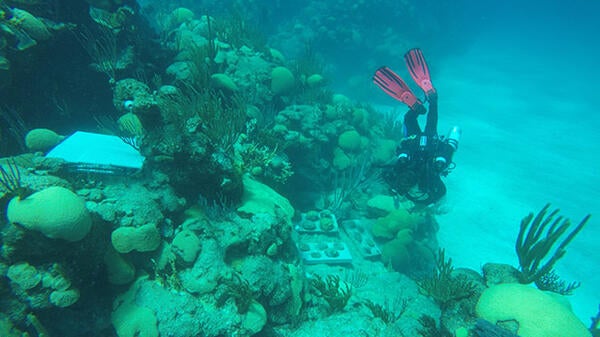“How resilient are coral reefs to global climate change?”
A Publication for a Bermuda Program Alum
February 26, 2018
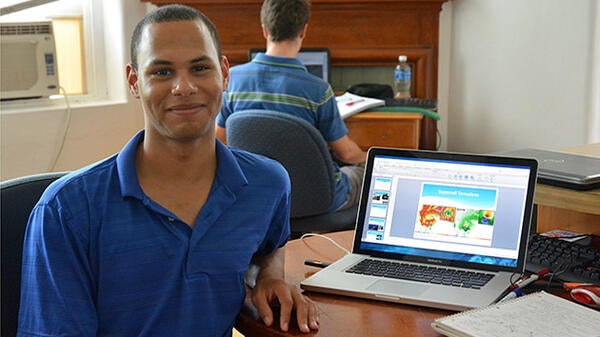
A former intern with BIOS’s Bermuda Program had his research on rain and flooding events in Bermuda selected last month for publication in a British meteorology journal. Michael Johnston’s paper appeared online January 18 with the Royal Meteorological Society, a professional group focused on weather and climate.
Temperature is King (At Least, as it Concerns Coral)
January 26, 2018
Successful scientific research is rarely a one-person endeavor, particularly when the research is interdisciplinary in nature, or requires field or laboratory investigations in multiple environments. The collaborative nature of modern ocean science research is evident in a recent publication in Science Advances, the peer-reviewed scientific journal published by the American Association for the Advancement of Science.
A Trio of Presentations
February 26, 2018
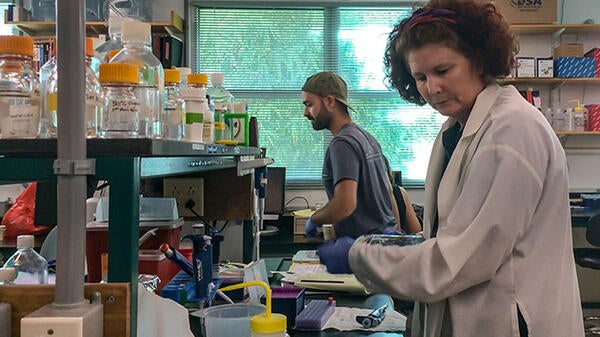
Three students who have worked as interns with BIOS microbiologist Rachel Parsons since 2016 will present their research findings this month at the Ocean Sciences meeting in Portland, Oregon.
Teams to Gather for Robotics Challenge
February 26, 2018
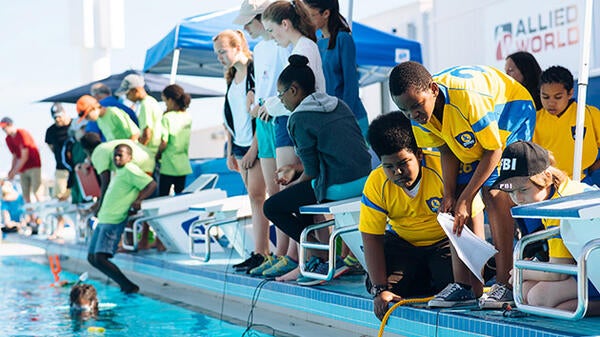
Twenty-eight teams from 10 Bermuda schools and educational organizations, including two new teams from Bermuda College, will converge on the National Sports Centre on March 25 for the 2018 Marine Advanced Technology in Education (MATE) Bermuda Regional Remotely Operated Vehicle (ROV) Challenge. The program, hosted by BIOS, is part of the Mid-Atlantic Robotics IN Education (MARINE) program, with lead donor support from HSBC.
Dive into Ocean Science Camp
February 26, 2018
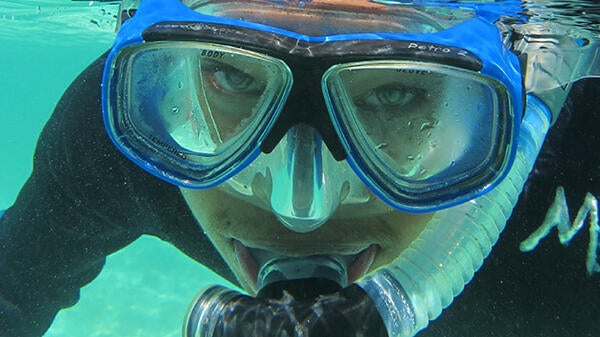
A new, week-long “Ocean Science Camp” at BIOS will provide an introduction to Bermuda’s marine life while also building a scientific foundation to encourage long-term curiosity about the ocean. Over the course of the week, students will have the opportunity to participate in snorkel training and research-based field trips aboard BIOS vessels to explore mangrove, sea grass, and coral reef environments. In a nod to the collaborative nature of science, students will work as a team on activities and projects that are focused on research being conducted at BIOS.
Where the Sea Meets the Sky
February 26, 2018
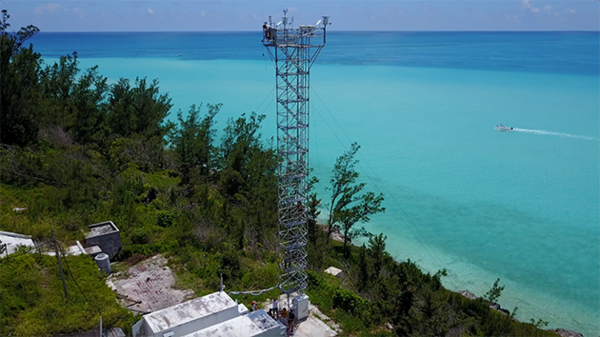
Nestled between the 75 vertical miles (120 kilometers) of Earth’s atmosphere and the deepest point of the ocean is a strip of air called the planetary boundary layer. This region, located in the lower troposphere (the lowest portion of the atmosphere, up to six miles, or 10 kilometers, in altitude), is where friction from the earth’s surface influences temperature, moisture, and wind.
Reducing Risk from a Changing Ocean
March 27, 2018

As society begins to see more evidence of global climate change—a rise in ocean temperatures and acidity, an increase in both the number and frequency of extreme weather events, and declining glaciers and Artic Sea ice, among other trends—coastal communities around the world are seeking ways to identify and mitigate the risks posed by a rapidly changing ocean. Doing so will require the knowledge and skills from experts in a wide range of fields, including risk analysis, oceanography, environmental security, and law.
Lionfish and BIOS Researchers Featured in Documentary Film
March 27, 2018
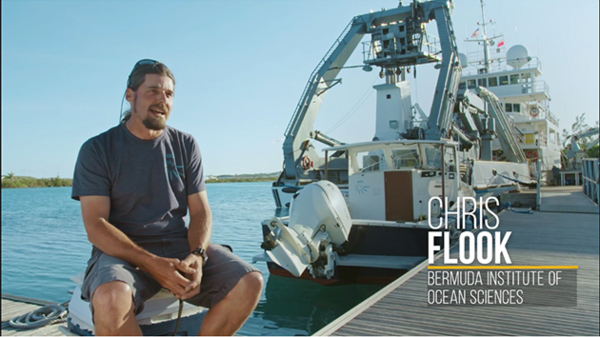
BIOS scientist Gretchen Goodbody-Gringley and staff member Chris Flook appear in a documentary film, showing this month at the Bermuda International Film Festival, about the challenges of invasive lionfish—and the creative solutions in development to curtail their spread.
High School Student Achieves Scientific Success at BIOS
March 27, 2018
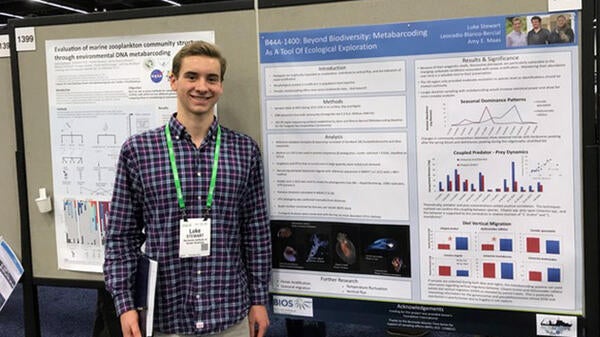
It’s not every day that you meet a high school student who already has three summers of scientific research, as well as a poster presentation at a professional scientific conference, under his belt. But Luke Stewart isn’t your average student.
